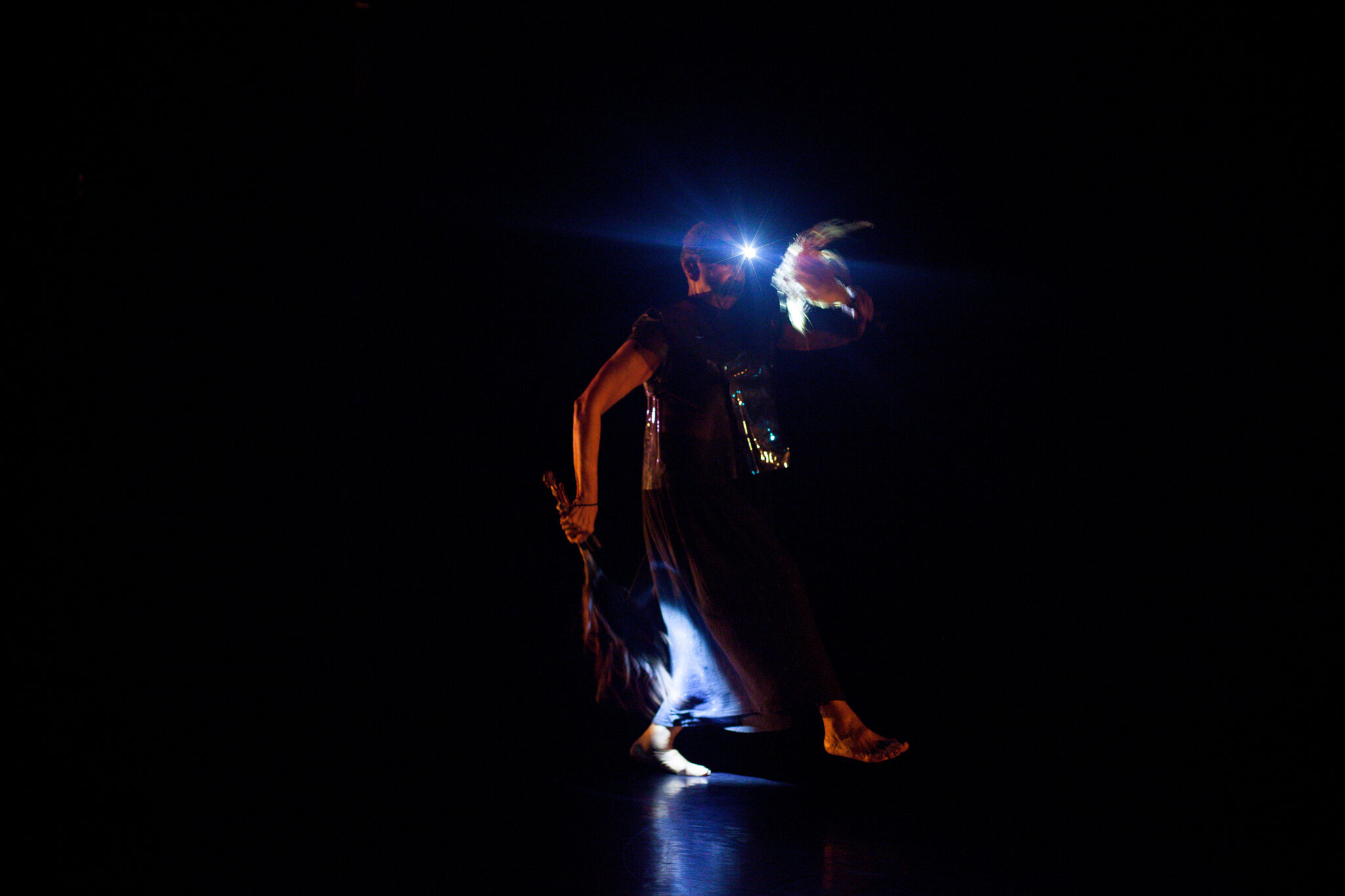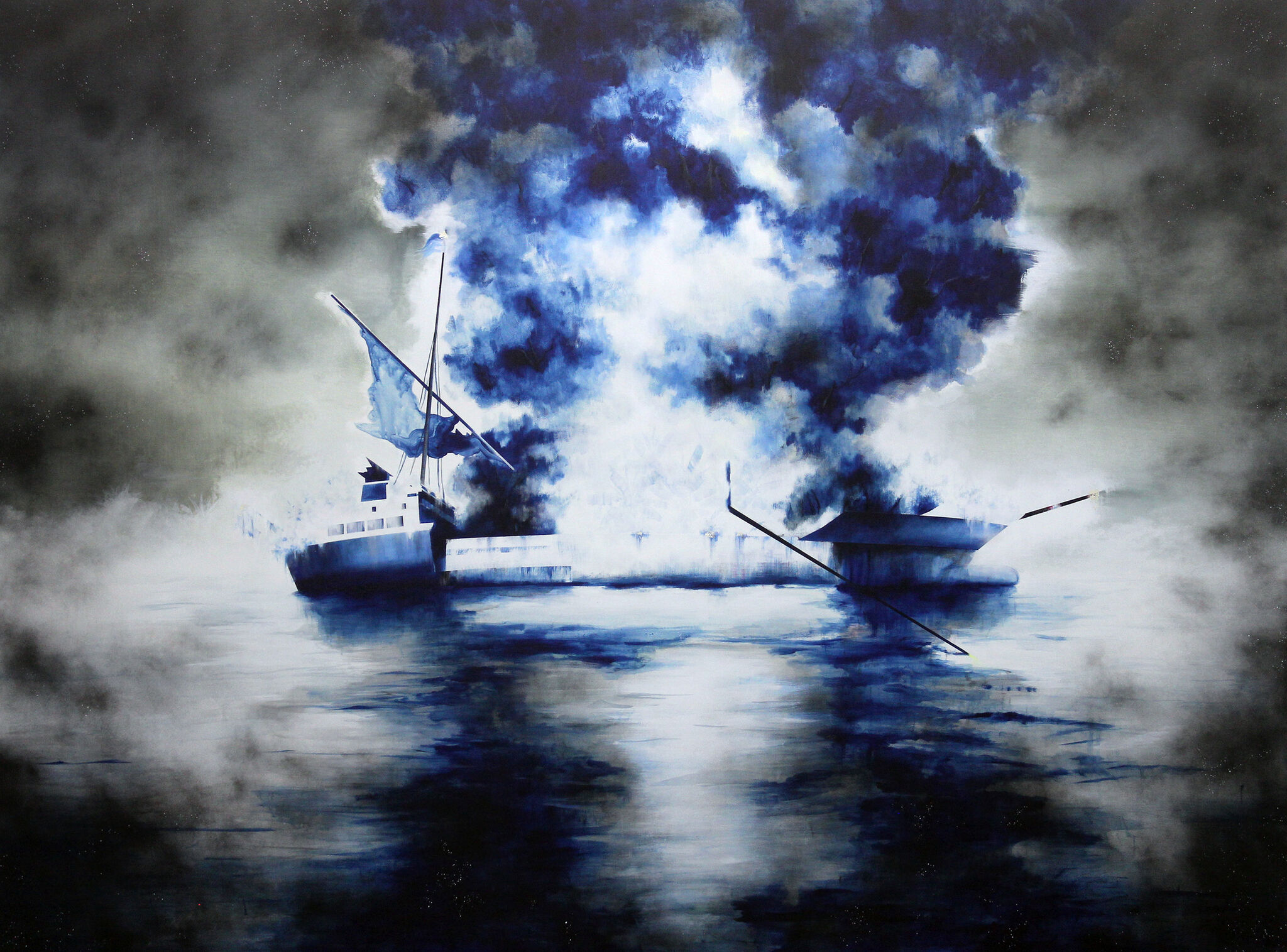Lacks Criticality
Fri, Mar 3, 2023
7 pm
This event has passed.
See more events like this.
Become a member today!
Join now to enjoy early access to exhibitions and events, unlimited free admission, guest privileges, and more.
Join nowThe Susan and John Hess Family Theater is equipped with an induction loop and infrared assistive listening system. Accessible seating is available.
Learn more about access services and programs.
Floor 3, Theater
March 3–5, 2023
7 pm
In Lacks Criticality (2018–23), choreographer Awilda Sterling-Duprey draws on the phenomenological forces of Hurricane Maria and their impact on Puerto Rican citizens’ bodies, minds, emotions, and the physical environment. The performance integrates abstractions of Yoruba dance traditions and the way these reference forces of nature. A particular focus is the dances of Oyá, goddess of the wind, storms, and lightning, whose choreographies move from slowness to violence, like the force of a hurricane. The meteorological phenomenon develops around a center, altering the wind and water, destroying everything in its path. In this iteration of Lacks Criticality, Sterling-Duprey will perform alongside Batá drummers.
The title of the piece references myriad convoluted responses by observers to unknown cultural contexts, as well as the raw qualities intrinsic to this structured improvisation.
Awilda Sterling-Duprey is a central figure in Puerto Rico’s cultural arts scene. Equally celebrated as a painter, performance artist, and dancer, Sterling-Duprey’s work interweaves performing her paintings and installations. Conceptual art and Dada are major influences in her work, as are Caribbean cultural and religious traditions. For more than forty years, she has created and performed experimental dance works combining Afro-Caribbean dance and modern experimental movement in Puerto Rico and New York City, and throughout Europe, Latin America, and the Caribbean. Sterling-Duprey attended the Escuela de Artes Plásticas y Diseño, San Juan; the University of Puerto Rico, Río Piedras; and earned an MFA from Pratt Institute, Brooklyn. She is a founding member of Pisotón, the experimental dance collective that transformed Puerto Rico’s dance and performance scene in the 1980s. She is a recipient of numerous fellowships and artist residencies, including a USA Fellowship in Choreography (2010), Tree of Life grant (2019), Mass MOCA residency (2022), Rauschenberg Residency (2022), and Joan Mitchell Fellowship (2022). Her work, Blindfolded, an ongoing performance in which the artist draws blindfolded while listening to recorded excerpts of straight-ahead jazz improvisation, was featured in the 2022 Whitney Biennial.
Merián Soto is a dancer, choreographer, video, and improvisation artist. She is the creator of the aesthetic-somatic dance practices and methodologies. Her more than forty-year career in dance has spanned various artistic movements. A central figure in the 1980s and ’90s Latina community arts movements in New York City, Soto has collaborated extensively with visual artist Pepón Osorio on critically-acclaimed interdisciplinary works such as Historias (1992–99) and Familias (1995), created in collaboration with eight South Bronx families. Soto is also known for her experiments with Salsa in critically-acclaimed works such as Así se baila un Son (1999) and La Máquina del Tiempo (2004). Since 2005, she has developed Branch Dancing, a meditative practice that investigates consciousness in performance. She is a professor of dance at Temple University in Philadelphia, where she has developed Modal Practice, the improvisational methodology now practiced widely by choreographers in Philadelphia, New York, Puerto Rico and beyond. Her most recent work, ¡Fenomenal! Rompeforma 1989–1996, a documentary on the celebrated Latinx dance and performance festival, co-directed and produced with Viveca Vázquez, will premiere in February 2023.
Marién Vélez has worked as a lighting technician and independent lighting designer in New York City, Buenos Aires, and in her home country of Puerto Rico. Vélez obtained her MFA in lighting design at Parsons School of Design, where she studied architectural, stage, and social lighting–a design approach that incorporates the social and cultural aspects of impacted communities. Vélez’s project experience includes offices, retail, mixed-use environments, and public spaces. In addition to her work as a lighting designer, Vélez is the co-founder of 22 studio and a member of the social lighting group Women in Lighting. The group helps low-income communities with lighting installations and workshops. She is currently studying the post-hurricane impact of electrical lighting in Puerto Rico and designing lighting solutions that will be implemented in public spaces in the affected communities.
Jainardo Batista is a Puerto Rican singer and percussionist who comes from a family with a long tradition in music and theater in Puerto Rico. Since arriving in New York City in 1993, he has been involved in the music scene, collaborating with rumberos, soneros, and salseros. In 1994, he became heavily involved in son cubano, a synthesis of African and Spanish styles widely considered to be Cuba's national music. Over the years he also developed deep ties to traditional Puerto Rican bomba, plena, salsa, rumba, and timba. He has performed Cuban music with many groups in New York and internationally. Batista maintains an active performance schedule in New York City.
Rafael Monteagudo is a drummer, percussionist, and composer. He arrived in the U.S. in 2000 from Havana. His areas of focus include jazz, funk, fusion, Latin jazz, and Afro-Cuban music. Monteagudo continued his studies at the Escuela Nacional de Arte and later at the Félix Varela conservatory in Havana. He has performed at prestigious festivals, such as the Havana Jazz Festival and Cubadisco. In North America, Monteagudo has performed at venues and music festivals such as Lincoln Center, Central Park SummerStage, the Jazz Gallery, Joe’s Pub, BANFF International Workshop in Jazz and Creative Music, Blue Note, Scullers Jazz Club, and the Greene Space at WNYC, among others. In addition to his work as a touring and recording performer and musician, Monteagudo is regularly featured in workshops at the Latin American Folk Institute in Maryland and in percussion master classes at various universities in the U.S.
Román Díaz is a Cuban-born master percussionist and a “living repository” of Afro-Cuban culture. He is a noted scholar of Cuban religious and folkloric music as well as a composer and performer of contemporary Afro-Cuban music and jazz. He has performed and recorded with Cuban diva Mercedíta Valdes, Jane Bunnett, Juan Carlos Formell, Paquito D’Rivera, Orlando “Puntilla” Rios, and Danílo Pérez as well as the Afro-Cuban folkloric groups Yoruba Andabo, Raices Profundas, and Los Marqueses de Atares. He has performed at renowned venues such as Lincoln Center, the Kennedy Center, and the Smithsonian Museum. Díaz has traveled globally, performing and teaching master classes on Afro-Cuban culture and percussion in Spain, France, Germany, Belgium, Israel, and Panama, and has taught at Havana’s Escuela Nacional de Instructores de Arte and been a guest lecturer at Berklee College of Music, Harvard University, Yale University, Rutgers University, Humboldt State University Afro-Cuban Camp, and the New School.
Concept and Performance: Awilda Sterling
Direction: Merián Soto
Lighting Design & Technical Direction: Marién Vélez
Costume Design: Freddie Mercado
Video Assemblage: Merián Soto
Yoruba drums: Jainardo Batista, Rafael Monteagudo, and Román Díaz
Video Credits:
Two videos from Encierro (Confinement) (2015-17)
Direction: Awilda Sterling
Graphics: Laura Patricia Ra
Animation: Andrea Bajandas
In preparation for… (2023)
Performance: Awilda Sterling
Direction: Mickey Negrón
Editing: Jesús David Baez Soto
Documentation: José López Sierra
Created at SJ 721 Residency in San Juan.
Ama Oyá (2018)
Direction: Awilda Sterling
Performance: Ama Gora
Editing: Merián Soto
Becoming (2018)
Direction: Awilda Sterling
Editing: Qijundai Liu & Merián Soto
Music: “Incomprendido” by Miguel Xenon, saxophone/Marsallis Music, 2014, Composer Bobby Capó; Environmental sound and 'batá' drums edition by Johannes Peters.
Lacks Criticality was commissioned by Temple University’s Department of Dance Reflection/Response Choreographic Commission in 2018.
Lacks Criticality is presented as part of no existe un mundo poshuracán: Puerto Rican Art in the Wake of Hurricane Maria and is organized by Marcela Guerrero, Jennifer Rubio Associate Curator, with Angelica Arbelaez, Rubio Butterfield Family Fellow, and Sofía Silva, former Curatorial & Education Fellow in U.S. Latinx Art.
Audio Description will be offered during the Saturday, March 4th performance through our Assistive Listening Devices (ALDs). If you have any other access-related questions, please contact us at accessfeedback@whitney.org or (646) 666-5574.


